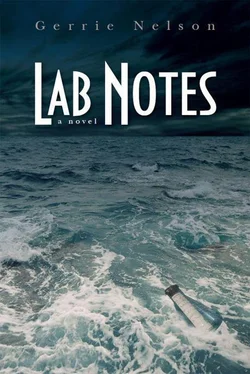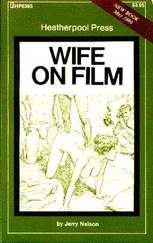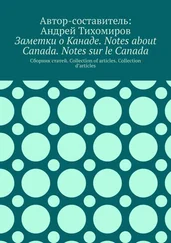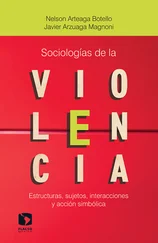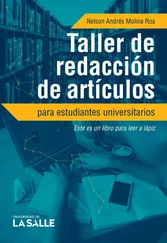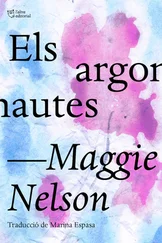FOR
CHARLIE
My muse, my first reader, my love
Emerging from a murky awareness, Harry now remembered tumbling over the railing and clawing for a grip on the rushing air. But he could not recall landing, facedown, in this dark place.
His quickening brain recorded a flinty presence in his left chest restricting him to gasping quarter-breaths. His rummaging mind located his limbs—still attached—but he could not will them to move. All but the slightest voluntary action had been shut down.
An aberrant wave of well-being washed over him. He had beaten them at their own craft; even a Pyrrhic victory was a glorious win considering the treachery he had thwarted.
He forced a smirk; he had been undone by his naïveté. He had omitted his own safety from the lists of assumptions and variables. What a fool to think they’d let him walk away.
Then there was the Velcro. But even the most fastidious scientist would not have factored in Velcro.
The wind piped up, and he shivered. How long had it been now? It seemed like just moments ago he had stood at Victoria Peak in a state of simple-minded bliss, enjoying the glitter of Hong Kong after dark. The city’s sparkle mirrored his jubilation.
He thought he had every reason to celebrate. Not only had he escaped the PhD sweatshop in Houston, but he had located a San Francisco group deserving of his technology. Tonight, they were supposed to close the deal.
He had been alone on the viewing platform; the blustery weather kept the tourists away. He remembered zipping his jacket part way and loosening the Velcro tab at his cuff to check his watch. The Ridge Laboratory representative was late.
His name was John Bowman. In his email he had described himself as lanky, early sixties, salt and pepper hair. Bowman said he had other business to conduct in Asia and suggested they meet in Hong Kong where Harry was visiting his favorite uncle and aunt. Bowman chose The Peak Restaurant, having read about the view online.
Harry planned to titillate Bowman with some of the specs for his device, then negotiate his employment contract. He looked forward to spending a few years in California.
Impatient, Harry had picked up his briefcase and stepped toward the station door to await the next tram’s arrival. At that moment, a tall man in a dark pullover sweater walked out onto the viewing platform. Even in the dim lighting, Harry recognized him—and he was stunned.
“You?” Harry said. “What are you doing here?”
The man took a threatening step forward and growled: “Do you know me?”
Confused and frightened, Harry retreated toward the railing.
The man advanced. His mammoth hand pressed against Harry’s chest, shoving him farther back. “Answer me. How do you know me?”
Despite the man’s age, his size gave him the advantage.
“I was mistaken,” Harry stammered.
The man became enraged. “You’re lyin.’” He grabbed Harry by the throat and bent him backwards over the viewing rail, then reached down with the other hand and tugged at Harry’s briefcase.
At first Harry resisted, yanking back on the handle. But he needed two hands to fend off his assailant. He let go of the briefcase and went for the attacker’s crotch. But his Velcro cuff latched onto the man’s sweater. While Harry struggled to free himself, the man swung the briefcase and smashed it against Harry’s temple, then heaved him over the railing.
The shivering was now constant. His heart, so carefully toned through years of jogging, had shifted from its deep tympani beat to the thready stutter of a snare drum.
Liquid warmth oozed across his upper abdomen. It was welcome at first, like the fleeting relief of childhood bedwetting. But the small comfort was eradicated by the chilly realization of its source and consequence.
His final thoughts were of those who would avenge his death and carry on his work: Andromeda and Pegasus point the way. Uncle, be safe.
April 17 th
…To say that she’s bewitched, one would have to acknowledge that such a thing is possible.
April 30 th
….Absence of proof is not proof of absence.
May 3 rd…….. Leonard Everly???………..
The syllabus listed today’s session as the final lecture of the fall semester. But, in fact, it would be Professor Rose’s last lecture ever.
Professor Diane Rose withdrew her hands from her sweater pockets, consulted her notes on the lectern, and resumed her discourse. “Scientific research is about truth. It’s about discovering truths in nature, then using those truths to benefit mankind.”
Diane glanced around the classroom at her biology students’ eager faces and realized they were more intent on her words than she was. Chagrined, she took a deep breath and forced herself to focus.
“The successful researcher is creative, confident, observant.
“As you witnessed in the laboratory this semester, the competent scientist never shrugs off a coincidence; it may be pointing the way to a discovery.
“Your lab experience also taught you that successful outcomes are tied to the quality of your input. Nothing good can come from incorrect, skewed or fabricated data. So it follows that, above all else, the research scientist must be painstakingly accurate and uncompromisingly ethical.”
“Who can define ethics for me?”
Several hands shot up.
“Okay, everyone gets a turn. Let’s start in the back.” She pointed over the rows of sweatshirts and denim toward Norma, a young woman in an orange sweater at the rear of the room. Norma had not raised her hand. She reminded Diane of herself when she was an undergraduate on full scholarship. She was always reluctant to volunteer information, fearing her voice would not measure up to the others—those with living, college-educated parents who could afford to pay their children’s tuitions.
Her opinion sought out, Norma jumped to her feet and launched into a speech on ethics.
As each student took a turn, Diane Rose paced and smiled, nodding occasionally to acknowledge well-thought-out points.
Diane glanced out the window at the dark clouds rolling in from the northwest; it appeared the promised Thanksgiving snowstorm had arrived in Pittsburgh.
Her hand strayed once again to the mobile phone in her pocket. She wished she had responded to Olimpia Garza’s voice message and phoned her in Houston immediately; better to have been late for class than to be so distracted.
Traditionally, Diane used the last semester hour to attempt steering her students toward careers in science. She called it the “commercial break.” But today she felt she was doing a lousy sales job; Olimpia’s message had jerked her thoughts in other directions.
Olimpia Garza, Diane’s longtime mentor and colleague, was a professor at the Universidad de Bogota in Colombia. For almost three decades Olimpia had been studying plant medicine used by the indigenous peoples of Central and South America and Borneo. As a result, she was regarded as one of the world’s foremost ethnobotanists.
A message from Olimpia was usually an invitation to the surreal. On rare occasions, she made a straightforward request like: “Could you present a conference paper on the botanical hallucinogens used by the Winoto tribe we visited in Colombia?” But mostly Olimpia proposed field trips that portended the mysterious or the exotic with “adventure” as the unstated, quadruple-starred footnote.
Читать дальше
